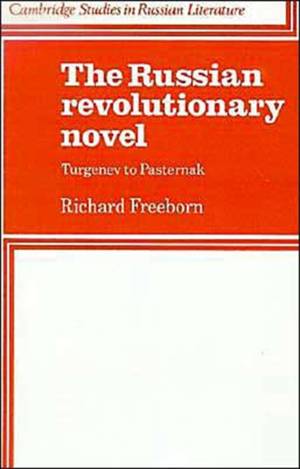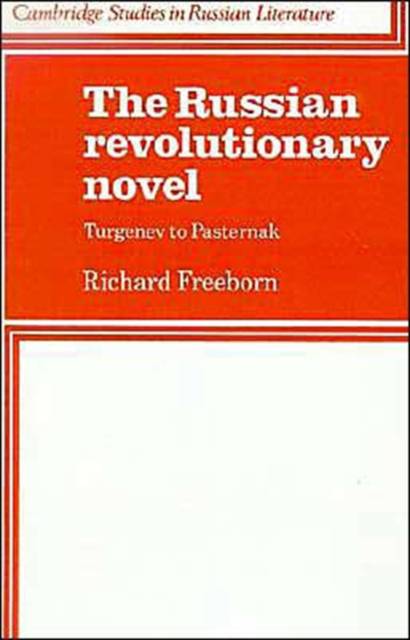
- Retrait gratuit dans votre magasin Club
- 7.000.000 titres dans notre catalogue
- Payer en toute sécurité
- Toujours un magasin près de chez vous
- Retrait gratuit dans votre magasin Club
- 7.000.000 titres dans notre catalogue
- Payer en toute sécurité
- Toujours un magasin près de chez vous
Description
Professor Freeborn's book is an attempt to identify and define the evolution of a particular kind of novel in Russian and Soviet literature: the revolutionary novel. This genre is a uniquely Russian phenomenon and one that is of central importance in Russian literature. The study begins with a consideration of Turgenev's masterpiece Fathers and Children and traces the evolution of the revolutionary novel through to its most important development a century later in Pasternak's Doctor Zhivago and the emergence of a dissident literature in the Soviet Union. Professor Freeborn examines the particular phases of the genre's development, and in particular the development after 1917: the early fiction which explored the relationship between revolution and instinct, such as Pil'nyak's The Naked Year; the first attempts at mythmaking in Leonov's The Badgers and Furmanov's Chapayev; the next phase, in which novelists turned to the investigation of ideas, exemplified most notably by Zamyatin's We; the resumption of the classical approach in such works as Olesha's Envy, which explore the interaction between the individual and society. and finally the appearance of the revolutionary epic in Gorky's The Life of Klim Samgin, Sholokhov's Quiet Flows the Don, and Alexey Tolstoy's The Road to Calvary. Professor Freeborn also examines the way this kind of novel has undergone change in response to revolutionary change; and he shows how an important feature of this process has been the implicit assumption that the revolutionary novel is distinguished by its right to pass an objective, independent judgement on revolution and the revolutionary image of man. This is a comprehensive and challenging study of a uniquely Russian tradition of writing, which draws on a great range of novels, many of them little-known in the West. As with other titles in this series all quotations have been translated.
Spécifications
Parties prenantes
- Auteur(s) :
- Editeur:
Contenu
- Nombre de pages :
- 316
- Langue:
- Anglais
- Collection :
Caractéristiques
- EAN:
- 9780521317375
- Date de parution :
- 31-05-85
- Format:
- Livre broché
- Format numérique:
- Trade paperback (VS)
- Dimensions :
- 141 mm x 216 mm
- Poids :
- 439 g







